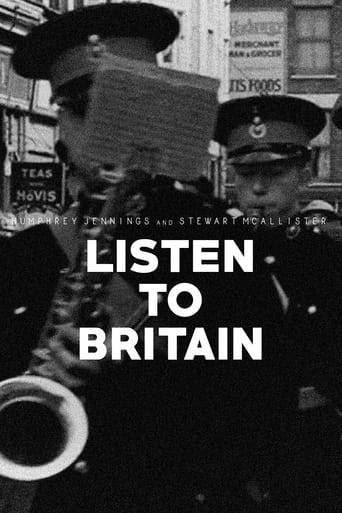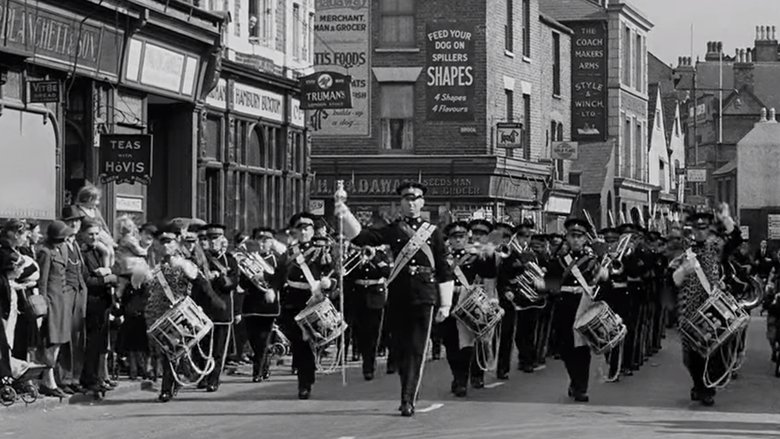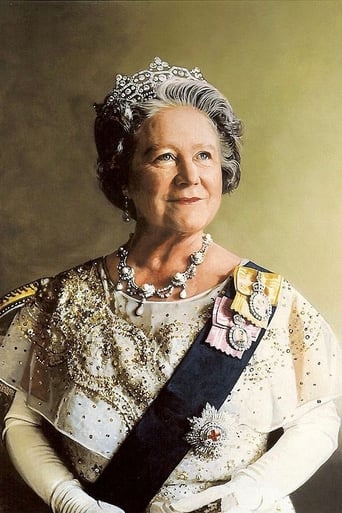

Listen to Britain (1942)
A depiction of life in wartime England during the Second World War. Director Humphrey Jennings visits many aspects of civilian life and of the turmoil and privation caused by the war, all without narration.
Watch Trailer
Cast


Reviews
"Listen to Britain" is a 20-minute black-and-white documentary from the days of World War II almost 75 years ago. The two directors, Humphrey Jenning and Stewart McAllister both died pretty early and this may be the most known film they made. It was nominated for an Academy Award although that really was not that much of an achievement as there were over 20 nominees in the documentary category that year and four winners too. In here you see basically all kinds of aspects from life in Britain back in the day: civilians, industry worked, soldiers and even some landscape recordings. Obviously, there is also quite some patriotic touch to it. You had to be proud of Britannia and believe in her. However, from the filmmaking perspective I cannot see anything particularly interesting or outstanding here. It's worth a watch for historians, but everybody else does not have to see it.
A depiction of life in wartime England during the Second World War. Director Humphrey Jennings visits many aspects of civilian life and of the turmoil and privation caused by the war, all without narration.The title is literal -- the director is asking us to "listen" to "Britain". Not necessarily its people, and not the narration of someone telling us how to feel. Just the sound of the radio, the airplane, and anything else going on in daily life during the war. They even dance to "Roll Out the Barrel", though in some weird circular slow dance style rather than the polka version I know and love.This is probably considered Humphrey Jennings' masterpiece. That may be a fair assessment.
Don't mistake my rating for a dislike of the craftsmanship of this film: as a film, it's well made, and as a propaganda film, it's very effective. My poor rating of this film reflects a complete disagreement with the philosophy of this film as a whole.Instead of narrating a propaganda about the war using the usual shots of battle and strong-stated voice-over, this movie uses music and imagery to say, "Look!""Look at Britain!" "Look how Brits work!" "Look how Brits dance!" "Look at our wonderful countryside!" "Look at our art culture!" "Look at our Classical and Gothic architecture!" "Look at our well-behaved children!" "Look at our cultured masses!" "Look at our dignified warriors!" "Look at our excellent communication systems!"The problem with it is entirely in the presentation of these things: everything in this film is straight, ordered, classic, high art. Everything is dignified and structured. Even the kids play in perfect circles and are choreographed excellently. The people dance somberly and respectively. The audience listens attentively and quietly......everyone's such a good fascist.Okay, so maybe that's extreme, but it shows, to me, what these types of propagandistic narratives can inadvertently create: confusion in later generations over who was the enemy, really. Now while the blaming-of-non-fascists-as-fascists has become a sort of individually recognized fallacy unto itself, I think what this movie shows is how much nationalism and pride can turn the impression of their masses into characterless, straight-laced people with no sense of individual identity. It's very scary.After all, if you can make something as light as wheat flowing in the wind look like rows of well-organized troops with bayonets, you can certainly sell the idea of a perfect society as a strict, organized conglomerate of so-called "superior people" in all of their blank-faced homogeneity. Films like these were created to provide comfort for the audience, to present an idea of what they're fighting for. I'm sure this film was pretty effective. And my judgment of this film stands for films of the like type made by any country involved in any conflict, American, German, Japanese, French, Italian, English, anyone. Films like these blur the line between enemies in conflict by showing just how much self-regard every side has (and conversely, films that show the other side as monstrous are just as damaging).--PolarisDiB
Jennings makes an interesting experiment. He films a number of scenes representative of wartime Britain, but does not include a spoken commentary or an anonymous musical backing.Instead, the sound alone (often amplified and remixed)conveys mood, emphasis, and narrative climax. A recital given by Dame Myra Hess in the National Gallery provides the background of a stirring climax.


